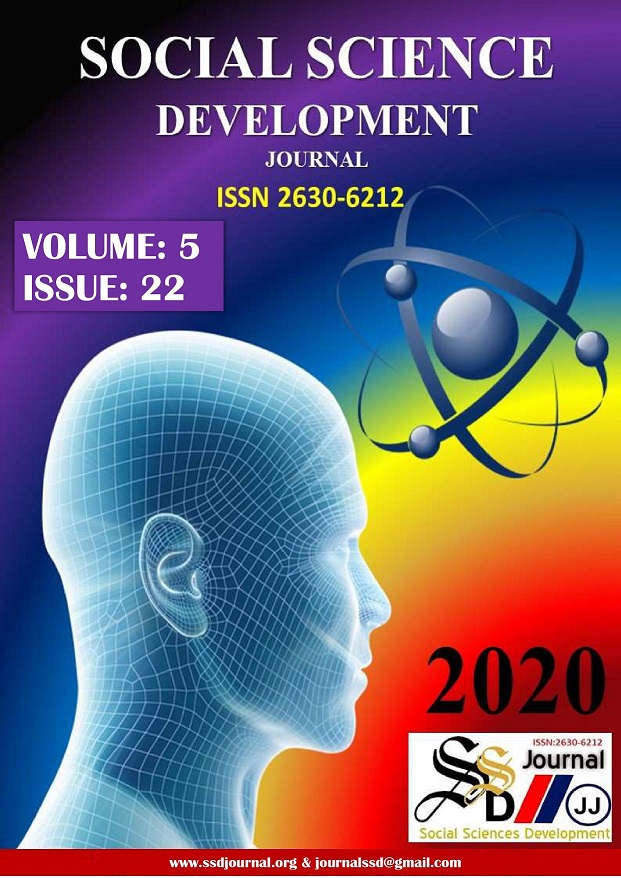“ONE FLEW OVER CUCKCOO’S NEST” FİLMİNİN İKTİDAR-DELİLİK İLİŞKİSİ BAĞLAMINDA OKUNMASI
DOI:
https://doi.org/10.31567/ssd.289Anahtar Kelimeler:
Delilik, Foucault, İktidar, ÖtekiÖzet
Delilik farklı zamanlarda farklı kültürlerde farklı biçimlerde adlandırılmış olan bir olgudur. Çoğu
zaman antik bir ritüelin parçası olarak kabul edilen delilik hezeyanları kimi zamanda kapatılmayı
gerektiren bir hastalık olarak kabul edilmiştir. Delilik kavramının aynı zamanda birçok farklı sanat
dalında farklı biçimlerde temsil edildiğine de tanık olunur. Sinemadan, edebiyata, müzikten resime
kadar birçok farklı sanat eseri delilik adını alan farklı algılama ve yorumlama eyleminin tanıkları
haline gelmiştir. Eski dönemlerden Rönesans dönemine kadar varlığı çok da önemsenmeyen delilik,
usçuluğun önem kazandığı dönemlerde akla ait olan bir kavram olarak disiplin terimiyle karşı
karşıya gelmiştir. Bu noktada dışlanma ve ötekileştirmeyle sonuçlanan delilik halleri artık başa
çıkılması gereken vahim bir hastalıktır. Normsal çerçevede normal olmayan bireyler, yirminci
yüzyılın önemli düşünürlerinden Foucault’nun bahsettiği büyük kapatılma ile toplumdan tecrit
edilmeye başlanmıştır. Bu doğrultuda realist ve materyaslist akla ters düşen delilik bir çatı altında
kapatılmaya mahkûm edilmiştir. Bu çalışmanın amacı Foucault’nun iktidar-delilik ilişkisine dair
izleklerinden yararlanılarak One Flew Over The Cuckcoo’s Nest filminin eleştirel bir film
okumasını gerçekleştirmektir.




